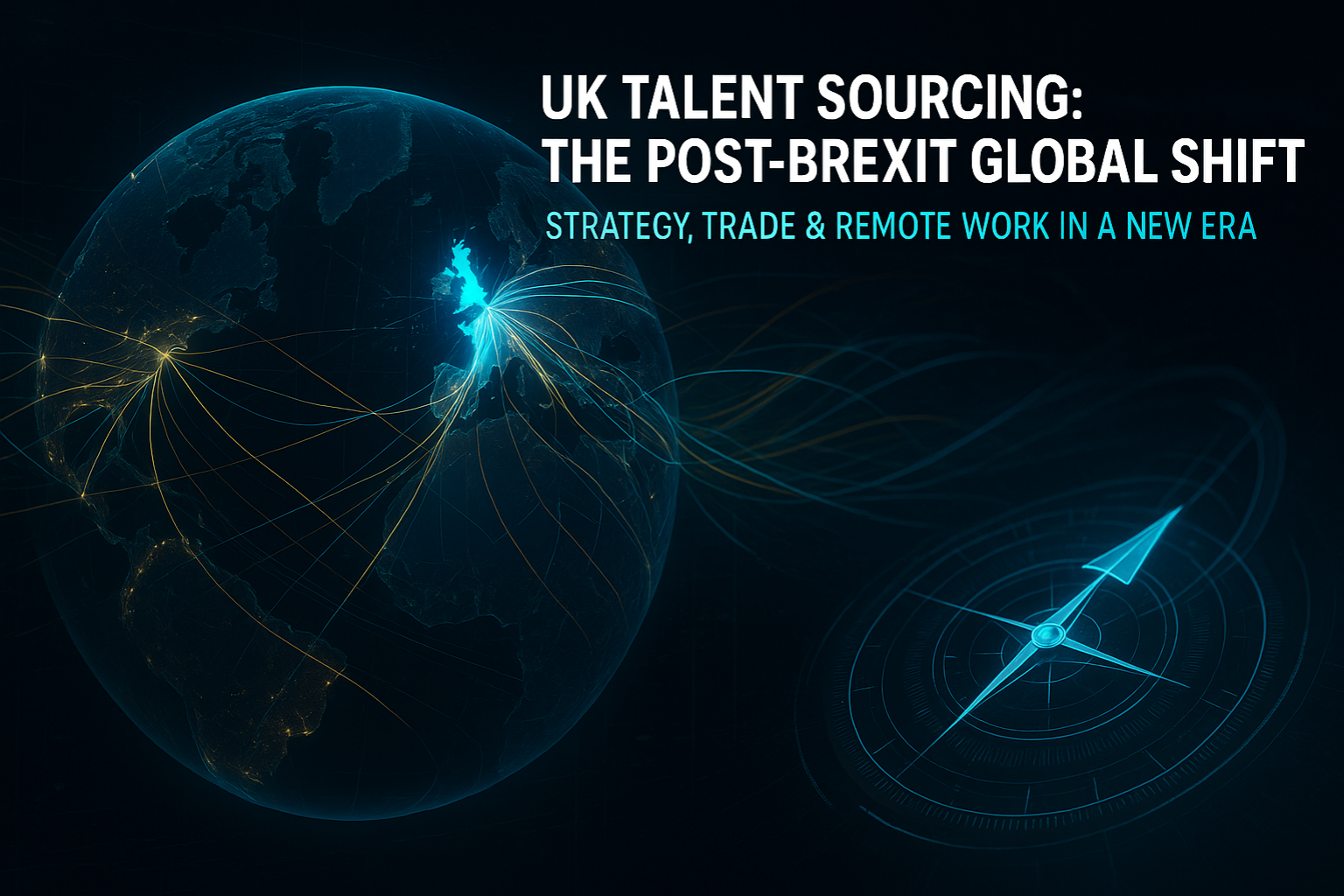How Brexit & Global Trade Shifts Are Transforming Talent Sourcing for UK Firms 🌍
How Brexit & Global Trade Shifts Are Transforming Talent Sourcing for UK Firms 🌍

Over the past few years, the UK talent landscape has undergone profound change. Brexit, combined with wider global trade realignments, has reshaped how British organisations attract, hire, and retain skilled professionals. At Wyman Bain, we’re seeing these shifts play out daily across the executive search and recruitment market, and the impact is significant.
Below, we explore the key trends affecting talent sourcing and how forward-thinking firms are adapting.
1. The Post-Brexit Skills Equation: A New Workforce Dynamic 🔄
Brexit introduced new immigration rules that tightened access to EU labour. While the Skilled Worker Visa route has helped bridge some gaps, many sectors, from technology and life sciences to manufacturing and professional services, continue to feel the effects.
Key impacts include:
- Reduced availability of mid-senior EU talent
- Greater competition for specialised UK-based candidates
- Longer and more complex hiring processes
- Increased reliance on employer sponsorship
This shift has prompted UK businesses to become more strategic and proactive in their talent planning.
2. Global Trade Reconfiguration: New Markets, New Talent Needs 🌐📈
As global trade patterns evolve, UK firms are expanding into new markets, building supply chains across Asia-Pacific, the Middle East, Africa, and North America.
This is creating demand for professionals with:
- International market expertise
- Cross-border compliance and regulatory knowledge
- Multilingual communication skills
- Experience in global expansion and trade strategy
In short:
global growth now demands globally minded leaders.
3. The Rise of Remote & Hybrid Work: Accessing Talent Beyond Borders 💼💻
One positive trend? The global normalisation of remote work.
UK employers are increasingly sourcing talent from overseas for roles that do not require physical presence. This enables companies to:
- Tap into broader international talent pools
- Access highly specialised skills not readily available in the UK
- Build more diverse and resilient teams
- Reduce wage inflation pressures in certain sectors
However, remote hiring brings new considerations around compliance, tax, and cultural integration, areas in which expert recruitment partners can provide essential guidance.
4. Greater Emphasis on Employer Brand & Candidate Experience ⭐🤝
With talent shortages persisting, candidates now hold more power than before. Firms are investing heavily in:
- Enhanced employer value propositions
- More transparent career pathways
- Stronger diversity, equity, and inclusion (DE&I) strategies
- Better onboarding and retention processes
Attracting top performers today requires more than just competitive pay, it requires
clarity, purpose, and culture.
5. Strategic Talent Partnerships: Recruitment as a Competitive Advantage 🤝🚀
With the environment becoming more complex, many organisations are turning to specialist executive search consultancies like Wyman Bain to navigate the new landscape.
We help clients:
- Build robust, futureproof talent strategies
- Identify leaders who can operate in post-Brexit markets
- Access niche skills globally
- Streamline cross-border hiring
- Reduce risk and ensure compliance
In an era of disruption,
strategic talent sourcing is becoming a key differentiator for businesses aiming for sustainable growth.
Final Thoughts: A New Era for UK Talent Strategy 🌟
Brexit and global trade shifts have undoubtedly reshaped how UK companies acquire talent. Yet, with the right approach, these challenges can become opportunities.
Firms that embrace flexibility, think internationally, and invest in long-term talent partnerships are the ones best positioned to thrive, both now and in the future.
If your organisation is navigating these changes and seeking expert support,
Wyman Bain
is here to help.



